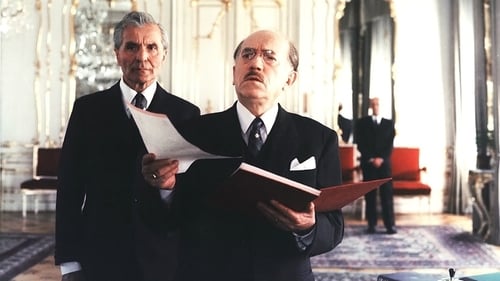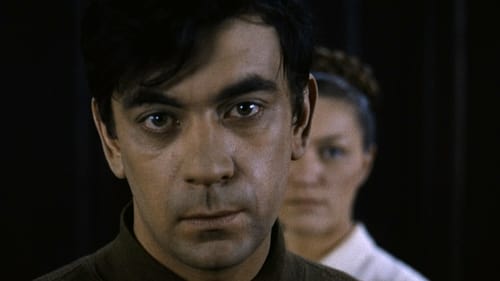
An allegory set in an archetypal Czech village, it tells of what happens when a sequence of mysterious events take place, including the disappearance of the stationmaster. While everything has a rational explanation, collective paranoia takes hold and everyone’s worst instincts are released. Interrogations, the abolition of rights and the search for scapegoats ultimately lead to murder

Ilona's Father (segment "Aljaška")

This feature film based on the events of 1938 is a chronicle of the futile efforts of the Czechoslovak president Edvard Benes (Jirí Pleskot), politicians and ordinary citizens, to save the independence and the territorial integrity of the state from the advance of Hitler's Germany. On the 29th of March 1938 the leader of the Sudeten Germans Henlein (Werner Ehrlicher) has a meeting with Hitler (Gunnar Möller). Hitler orders him to intensify pressure on the Czechoslovak government. On the 24th of April in Carlsbad, the Sudetendeutsche Partei (Sudeten German Party) decides upon eight demands that are unacceptable to the Czechoslovak President, since they would ultimately lead to the break-up of the Republic. Benes still shows a certain willingness to negotiate, and Henlein resents this. The Germans are determined to make further negotiations impossible through incidents and violence.

In the aftermath of World War II, a soldier takes charge of a manor formerly owned by a German family and falls in love with the daughter, now a maid. Their relationship forces him to confront the tension between his love and his conscience.

Five Girls Around the Neck, in 1967, set out to explore that critical age of adolescence when a person's character is formed for good or evil. Schorm examined a girl's problems of being giving too much. She tries to buy the goodwill of her less fortunate friends; her intentions are pure, but in the difficulty of communicating she learns envy and deceit, and must decide if she will submit to double dealing or steel her life against self-deception and mediocrity. In addition to the relationship between the girl and her friends, Schorm introduces a teenage romance and the broader relationship between the girl's parents - neatly tied together with segments of Weber's opera "Der Freischütz". He reveals himself as a skilled psychological director with a wide range of knowledge about people.



